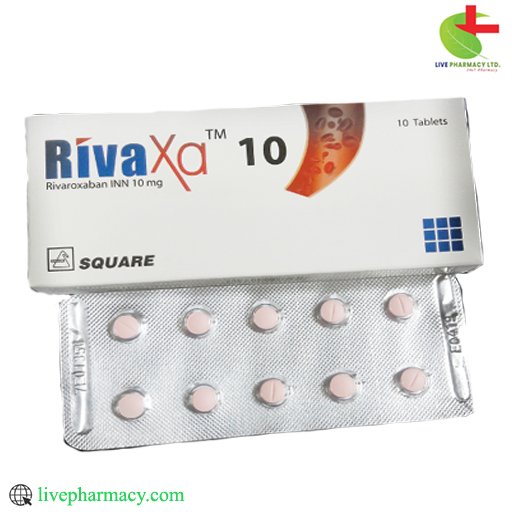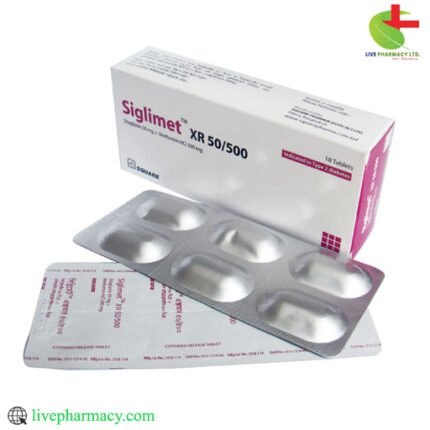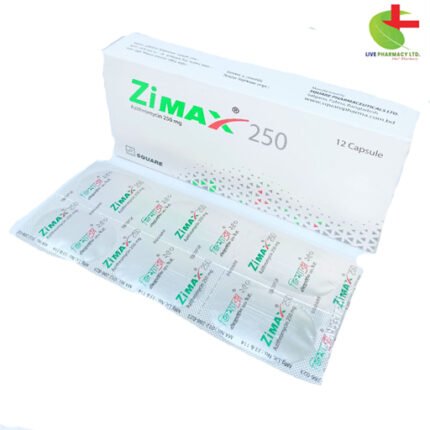RivaXa 10
250.00৳ Strip
- RivaXa: Available in 2.5 mg and 10-20 mg doses.
- Prevents Atherothrombotic Events: Post-Acute Coronary Syndrome (ACS).
- Reduces Risk of Stroke and Systemic Embolism: Especially in nonvalvular atrial fibrillation.
- Highly Selective Factor Xa Inhibitor: Efficiently disrupts blood coagulation pathways.
- Manages DVT and PE: Provides effective treatment and prevention strategies.
- Careful Dosage Guidance: Ensures patient safety and well-being.
 Brand
Brand
|
Square Pharmaceuticals PLC |
|---|---|
 Generics
Generics
|
Rivaroxaban |
Indications
RivaXa 2.5 mg: This medication is intended for adult patients post-Acute Coronary Syndrome (ACS) with elevated cardiac biomarkers (Troponin or CK-MB) to prevent atherothrombotic events. It’s recommended to be taken alongside Aspirin alone or with Aspirin plus Clopidogrel or Tidopidine.
RivaXa 10-20 mg: Used to mitigate the risk of stroke and systemic embolism in patients with nonvalvular atrial fibrillation, as well as for the treatment and prevention of deep vein thrombosis (DVT) and pulmonary embolism (PE). Additionally, it reduces the likelihood of DVT recurrence and PE in patients undergoing knee or hip replacement surgery.
Pharmacology
Rivaroxaban acts as a highly selective direct factor Xa inhibitor, disrupting both intrinsic and extrinsic pathways of the blood coagulation cascade, thereby impeding thrombin formation. It doesn’t affect thrombin (activated factor II) or platelets.
Dosage & Administration
- Rivaroxaban 2.5 mg: Administered at a recommended dosage of 2.5 mg twice daily, accompanied by a daily dose of 75-100 mg Aspirin or Aspirin in combination with either 75 mg clopidogrel or a standard daily dose of ticlopidine.
- Rivaroxaban 10-20 mg: Dosage varies based on Creatinine Clearance levels, typically ranging from 15 to 20 mg orally once daily or twice daily with food, as prescribed.
Interactions
Combining RivaXa with drugs that are both P-gp and CYP3A4 inhibitors can heighten its exposure and pharmacodynamic effects. Conversely, co-administration with a combined P-gp and strong CYP3A4 inducer may reduce efficacy. Caution is advised when using other medications that may increase bleeding risk.
Contraindications
RivaXa should not be used in patients with known hypersensitivity to Rivaroxaban or any of its components, or in those experiencing active pathological bleeding.
Side Effects
Common side effects include an increased risk of bleeding, spinal or epidural hematoma, and an elevated stroke risk after discontinuation, particularly in cases of nonvalvular atrial fibrillation.
Pregnancy & Lactation
Rivaroxaban is categorized as a pregnancy category C drug. Its safety during pregnancy and lactation has not been established, and caution is advised.
Precautions & Warnings
Early discontinuation of RivaXa without adequate alternative anticoagulation may heighten the risk of thrombotic events. Special caution is required in patients with bleeding disorders, severe arterial hypertension, gastrointestinal diseases, or neurological impairment during neuraxial anesthesia. Additionally, RivaXa is not recommended for unstable pulmonary embolism cases.
Overdose Effects
Overdosing may lead to hemorrhage. While there’s no specific antidote for RivaXa, activated charcoal may help reduce absorption in case of overdose. Partial reversal of anticoagulation parameters can be achieved with plasma products.
Therapeutic Class
Oral anticoagulants.
Storage Conditions
Store RivaXa in a cool, dry place below 30°C, shielded from light, and out of reach of children.













Reviews
There are no reviews yet.